When I have the time I do my best to help students and teachers. Recently some senior high school students from De La Salle University Integrated School interviewed me for a research project.
Today I'm sharing the interview by Samantha Servino Parker, whose adviser is Mr. Engelbert C. Talunton.
The photo shows l-r: Samantha Parker, Leila Magtules, and Jihan Ferrer
~ Cecilia Brainard
INTERVIEW QUESTIONS FOR CECILIA MANGUERRA BRAINARD
OPENING BY SAMANTHA SERVINO PARKER
-
I
will be writing a novel on Autism Spectrum Disorder and I would like to request
for your honest answers to all questions.
I.
Basic Information
1. Novelist’s Experience
Cecilia Manguerra Brainard is the author of 10 books, editor of 4
books, co-edited 6 books, collaborated on one novel.
 cb: My first novel (Song of Yvonne) was
published in 1991; this was published by Dutton/Penguin in 1993 as When the
Rainbow Goddess Wept. My first collection of short stories (Woman with Horns
and Other Stories) was published in 1987 by New Day Publishers.
cb: My first novel (Song of Yvonne) was
published in 1991; this was published by Dutton/Penguin in 1993 as When the
Rainbow Goddess Wept. My first collection of short stories (Woman with Horns
and Other Stories) was published in 1987 by New Day Publishers.
a.
How
many have you written in that time?
cb: I’ve written three novels: When the
Rainbow Goddess Wept; Magdalena; and The Newspaper Widow.
1.2. What style or type of novel do you
specialize in?
cb: I write literary novels, meaning
they are character-driven stories.
1. Preparation for writing a novel
1.1. Do you do research before writing
your novels?
cb: First of all, the focus of my
novels and short stories are on character and character development. Since many
of them are set during important Philippine historic times, I do research.
a.
What
do you research on?
cb: Mainly, I make sure the history
part in my stories is sound. I also make sure the setting is correct. For my
third novel, The Newspaper Widow, which is set in Ubec, Philippines in 1909, I
researched such matters as the lighting in the street, building architecture,
mode of transportation. I discovered
that there was a train system in Cebu during that time. (Note: my mythical Ubec
is a place that’s a lot like Cebu, but it’s not exactly Cebu.)
b.
What
research should I have?
cb: I think your focus should be on your main character. You need to find out his/her motivation, what makes him/her tick. You need to find his/her story. What is his/her character arc? And along the way, you will need to understand autism and how this affects or means to your character.
cb: I think your focus should be on your main character. You need to find out his/her motivation, what makes him/her tick. You need to find his/her story. What is his/her character arc? And along the way, you will need to understand autism and how this affects or means to your character.
1.2. How do you outline your ideas?
cb: Fiction is organic
to me. I cannot really outline it. I may have a plan, but that can easily
change. I generally follow character and character development in fiction
writing.
a.
How
do you create a solid plot from this outline?
cb: See above. When my draft is
complete, I will edit and shape my work, so the beginning, high point, and
conclusion are in there.
b.
How
do you create subplots?
cb: Subplots in my work are generally connected to the development of characters other than the main ones. I generally do not deliberately “create subplots” but these stem from how the story is flowing.
cb: Subplots in my work are generally connected to the development of characters other than the main ones. I generally do not deliberately “create subplots” but these stem from how the story is flowing.
2.
Writing
a novel
1.1. What is the general writing process
like for you?
cb: Writing is in many ways magical to me. A character, a memory, an incident will intrique me and I will start playing with this. I will ask questions to myself, try to understand what makes me interested in this. I will start giving it form.
cb: Writing is in many ways magical to me. A character, a memory, an incident will intrique me and I will start playing with this. I will ask questions to myself, try to understand what makes me interested in this. I will start giving it form.
a.
Do
you have bursts of motivation?
cb: Sure, I’ll have bursts of creative energy but generally and especially for novel-writing, I have to plod along even when there is no “burst of motivation.” I take master novel classes so I have a deadline and am “forced” to write.
cb: Sure, I’ll have bursts of creative energy but generally and especially for novel-writing, I have to plod along even when there is no “burst of motivation.” I take master novel classes so I have a deadline and am “forced” to write.
b.
Do
you usually stray far from the outline that you’ve made?
cb: All the time. Any kind of outline is constantly changing.
cb: All the time. Any kind of outline is constantly changing.
1.2. How do you create your characters?
(From
http://cbrainard.blogspot.com/2013/08/how-to-write-novel-2-focus-on-character.html)
1. What
is the person’s full name, age, date and place of birth?
2. What
was the person’s family life like? What were parents and siblings like?
Environment? Schooling?
Environment? Schooling?
3. How
tall is this person? How heavy? Color of hair, eyes? Anything unique
about
his/her looks?
his/her looks?
4. Whom/what
does the person love? Hate?
5. What
gives this person the greatest joy?
6. What
is the happiest moment of the person? Saddest? Most embarrassing?
7. What
does the person want to accomplish in life? (long term as well as short
term
goals)
goals)
8. What
is the immediate tangible thing that the person wants?
9. What
is the person’s obsession?
10. What
is his/her recurring dream?
11. What
is his/her recurring memory?
12. What
is the person’s favorite pastime?
13. What
does the person do for a living? How does he/she feel about the job?
cb: Inhabit
the world of your characters. “Crawl into your characters’ minds.” as said by my teacher, Leonardo Vercovicci. Become the character, inhabit
their minds so I can see, smell, feel, think, imagine, as they do.
a.
How
do you make your characters seem real?
b.
How
capture the essence of your characters?
1.3. How do you complete your novels?
(From
http://cbrainard.blogspot.com/2013/12/creative-writing-two-important-rules.html)
cb: SHOW
DON’T TELL
Don’t say the woman is beautiful, show me her hair, her eyes,
her teeth, the curve of her ankle perhaps, whatever it is that makes her beautiful. Use
words to create these images. Write in a sensual way, that is to let your
readers see, hear, feel, smell
BE SPECIFIC
Instead
of saying there were bright flowers near the house, how about saying, an
ancient bougainvillea vine dripping with carmine-colored flowers stood by the
side of the house.
cb: Explosion
and Drawing as Writing exercises. ‘Explode’ your writing, expand it some more. "She
went up to his flat." You could rewrite this to give more details, making
your work "explode." For instance: "She went up his modern
flat." And making it explode some more: "She slowly went up to
his modern flat at 8 in the morning." And so on. You can get bits of
text and make it grow. Draw to imagine the setting better. So in essence,
you write a draft, and then you can pull out "thin" sections of the
draft and expand it with more detail, more fleshing-out.
cb: Write diaries to practice writing,
it teaches flow. Write about anything. Journal writing can reflect the world
around us.
a.
How
do you ensure a smooth flow of ideas when writing?
cb: Generally, the drafts are not
really “smooth flow of ideas.” They’re very messy, and it’s the editing that
smoothens the work out.
b.
How
do you avoid making the novel seem draggy?
cb: There’s a reason when a work drags. It could be uninspired. It could be technically flawed. If my work drags, I have to figure out what the problem is and try and solve it.
cb: There’s a reason when a work drags. It could be uninspired. It could be technically flawed. If my work drags, I have to figure out what the problem is and try and solve it.
c.
How
do you avoid ‘writer’s block’?
cb: I have now learned tricks to avoid writer’s block. The key here is to realize that creativity is flowing from the right side of the brain, while the critical/logical thinking is from the left side of the brain. Writer’s block is when the left brain is overactive. One trick is to “not think” too hard because this interferes with creativity. Avoid being critical of one’s work. Allow yourself to “flow” when you are working on the draft.
cb: I have now learned tricks to avoid writer’s block. The key here is to realize that creativity is flowing from the right side of the brain, while the critical/logical thinking is from the left side of the brain. Writer’s block is when the left brain is overactive. One trick is to “not think” too hard because this interferes with creativity. Avoid being critical of one’s work. Allow yourself to “flow” when you are working on the draft.
III. Time
1. How long does it usually take
for you to complete your novels?
cb: It's important to professionals
to have deadlines. Inspiration can only do so much; it can come, it can go.
(From
https://cbrainard.blogspot.com/2016/09/philippine-literature-interview-of.html)
cb: It is difficult to
say how long it takes for me to write a book, because each book has its own
demands. The novels are difficult and unpredictable. My third novel took
perhaps five years from when I committed to writing it to completion.
1.1.How long do you feel a
novice writer would take to complete a full length novel?
1.2.What is the minimum amount of time that you
recommend a writer should have when writing a novel?
-
Is
there any additional advice or information that you would like to give to me or
feel is necessary for me to know as a novice writer?
cb: Read a lot. Read the kind of work
that you would like to produce. If you want to be a mystery writer, read the
best mystery books there are.
Learn the fundamentals of writing
before writing so you know how to create good dialogue and understand what
plot, or voice, of point of view are all about.
Don’t give up, even if there are
obstacles. Believe in your work and in yourself.
-
Thank
you very much!
-
END OF INTERVIEW –
Tags: Philippine, Philippines, Cebu, Cebuano, literature, authors, novels, books, writers, fiction, education, university, English
Interview of Cecilia Manguerra Brainard by Jihan Ferrer #DLSU
Interview of Cecilia Manguerra Brainard by Allison Hunter
Interview Cecilia Brainard: "Woman with Horns" and Different Facets of the Filipino Woman
Enotes.com Biography of Cecilia Manguerra Brainard
Interview of Cecilia Manguerra Brainard about Creative Writing
Interview of Cecilia Brainard "Good and Bad Reasons for Being a Writer
Interview: Cecilia Brainard's Novel "Magdalena" Revealed
Interview of Cecilia Manguerra Brainard by Allison Hunter
Interview Cecilia Brainard: "Woman with Horns" and Different Facets of the Filipino Woman
Enotes.com Biography of Cecilia Manguerra Brainard
Interview of Cecilia Manguerra Brainard about Creative Writing
Interview of Cecilia Brainard "Good and Bad Reasons for Being a Writer
Interview: Cecilia Brainard's Novel "Magdalena" Revealed
Tags: Philippine, Philippines, Cebu, Cebuano, literature, authors, novels, books, writers, fiction, education, university, English





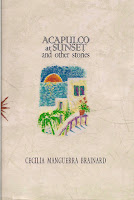






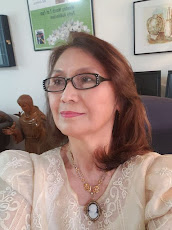

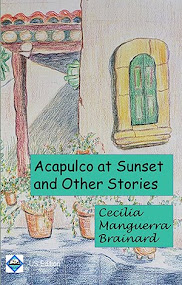



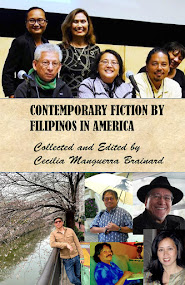
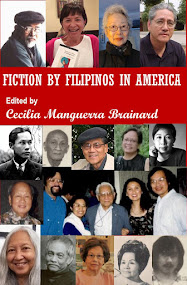



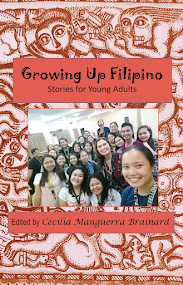
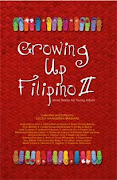


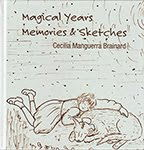


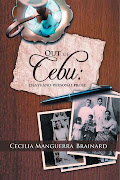

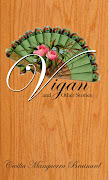

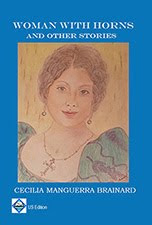

No comments:
Post a Comment